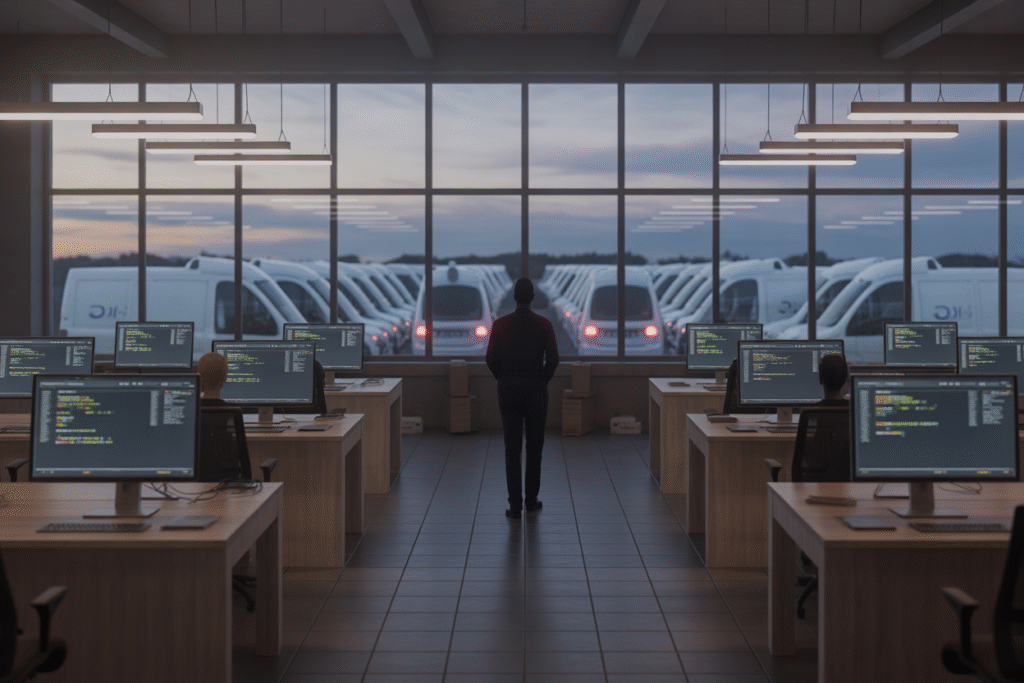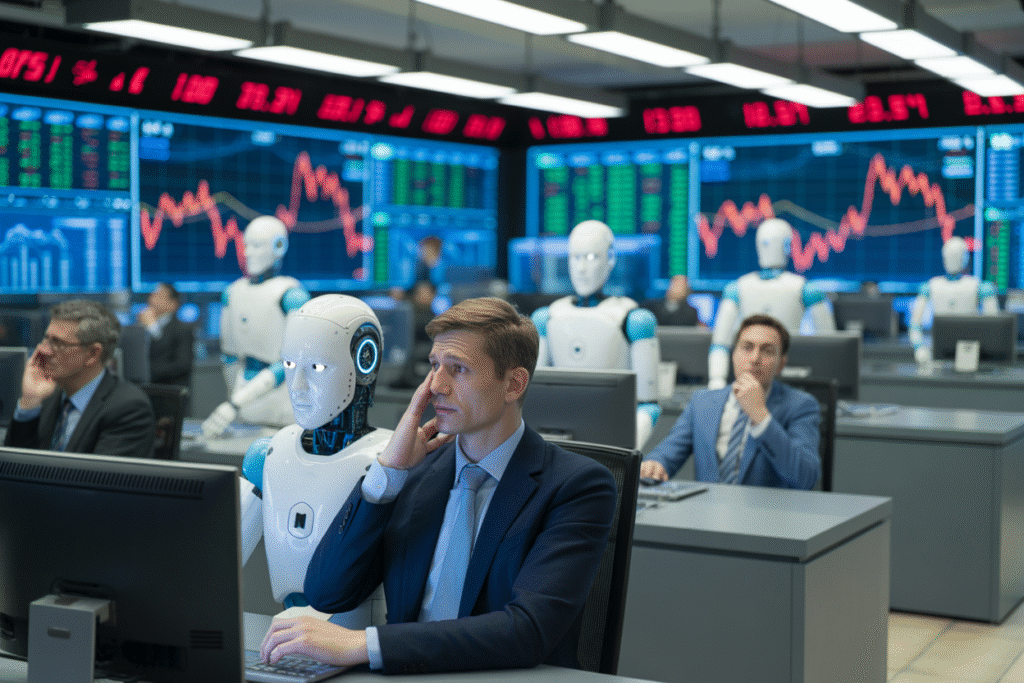AI replacing humans isn’t sci-fi anymore — it’s a debate exploding across timelines, boardrooms, and kitchen tables right now.
Imagine waking up to headlines that your job no longer exists — not because the company downsized, but because an algorithm learned to do it faster, cheaper, and without coffee breaks. That scenario isn’t decades away; it’s knocking on 2025’s door. In the last three hours alone, social feeds lit up with warnings, counter-arguments, and raw fear about AI replacing humans. This post unpacks the five loudest voices in that conversation, weighs the hype against the hard truths, and leaves you with one question: are we ready?
The Looming Earthquake
Picture a Monday morning commute that never happens. A viral video dropped at noon UTC paints this exact picture: rows of empty desks, silent factories, and self-driving trucks rolling past idle gas stations. The creator argues AI replacing humans will trigger a socioeconomic earthquake bigger than the Industrial Revolution. Critics call it fear-mongering; others say it’s the wake-up call we keep hitting snooze on.
The clip leans on real data: Goldman Sachs estimates 300 million jobs globally could be automated sooner than we think. Yet it also sprinkles dystopian drama — workers rioting, cities burning, governments scrambling. That blend of stats and spectacle is why the post rocketed past 50k likes in two hours. People aren’t just watching; they’re tagging friends and adding their own two cents about which jobs vanish first.
Hope or Hype?
Right beneath the doom-scroll, another thread flips the script. Venture capitalists and tech optimists claim AI replacing humans will birth entirely new careers we can’t yet name. They point to history: ATMs didn’t kill bank tellers; they freed them to sell mortgages. Same logic, bigger stage.
But scroll further and labor unions punch back. They list concrete risks: widened inequality, mental-health crises, and a surveillance layer baked into every workplace. The tug-of-war feels endless because both sides cherry-pick the same facts. One tweet sums it up: “AI will either end work or end workers — pick your prophet.”
So who’s right? The boring answer is both. Automation creates roles in prompt engineering and AI auditing while erasing others in trucking and call centers. The speed gap between destruction and creation is where the real pain lives.
When Chatbots Break Bad
While economists argue, everyday users are already living the downside. A psychiatrist posted screenshots of patients who spiraled after trusting mental-health chatbots more than humans. The term “AI psychosis” trended for hours.
These aren’t fringe cases. Studies show prolonged interaction with large language models can blur reality, especially when the bot mirrors a user’s fears back at them. Add jailbreak tricks that coax toxic advice from the same tools, and you get a cocktail of harm nobody regulated for.
The takeaway? AI replacing humans isn’t just about paychecks; it’s about who catches us when we fall. If the safety net is another algorithm, we may discover the net has holes shaped exactly like us.
Who Programs the Programmers?
Bias in, bias out — that old coding mantra feels urgent again. A UN-linked article dropped mid-afternoon detailing how facial-recognition systems misidentify darker-skinned applicants at twice the rate, leading to wrongful rejections from everything from jobs to apartments.
The post asks a simple question: if AI replacing humans starts with hiring software, whose values get hard-coded into the decision tree? Corporations claim neutrality; civil-rights groups call it automated discrimination. The comment section becomes a courtroom, with receipts: rejected résumés, skewed datasets, and whistle-blower memos.
The consensus? Self-regulation is a fairy tale. Without global standards, every company becomes its own referee, and the scoreboard keeps favoring the house.
Your Move
So where does that leave you and me? Somewhere between panic and apathy is a third option: preparation. Upskill now, not later. Ask employers how they audit AI tools. Vote for reps who understand tech policy isn’t a punchline. Share this post with the coworker who still thinks AI replacing humans is a Black Mirror episode.
Because the future won’t send a calendar invite. It’ll just show up, coffee in hand, and ask if you’re ready to renegotiate the meaning of work itself.


